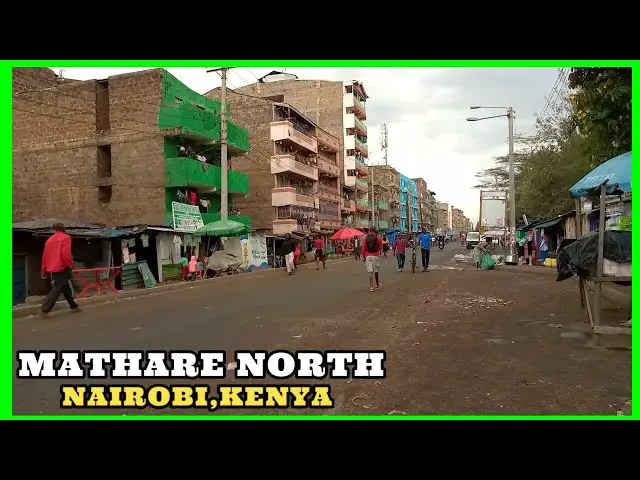Imagine stepping into Mathare Estate, a vibrant and bustling community in Nairobi. As you wander through this lively neighborhood, you are captivated by the sights and sounds that surround you. The narrow streets lined with colorful buildings, the smell of delectable street food wafting through the air, and the warm smiles of the locals all contribute to the unique charm of Mathare Estate. This article will take you on a journey through this fascinating part of Nairobi, revealing the rich culture, resilient spirit, and dynamic energy that make Mathare Estate a truly remarkable place. So, put on your walking shoes and get ready to explore the vibrant streets of Mathare Estate.
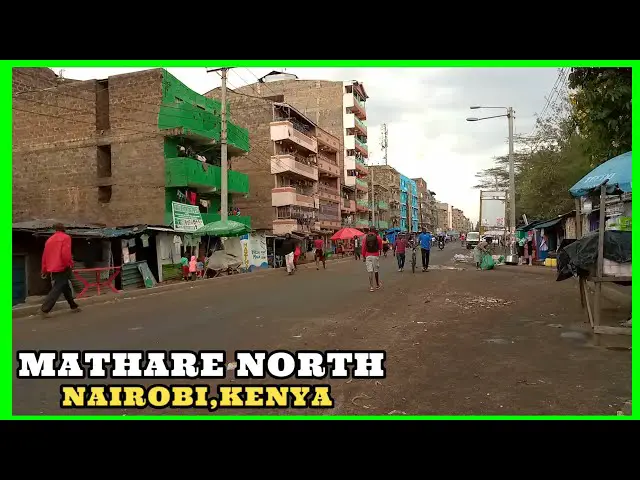
This image is property of i.ytimg.com.
History
Colonial Origins
Mathare Estate in Nairobi, Kenya has a rich history that dates back to the colonial era. It was originally established as a settlement for African workers who were employed in the city during British rule. These workers were brought in to work on the construction of the railway line from Mombasa to Nairobi. The settlement was located on the outskirts of the city and primarily consisted of tin-roofed houses.
Rapid Urbanization
As Nairobi grew rapidly over the years, Mathare Estate experienced significant urbanization. The influx of people from rural areas in search of better job opportunities led to an increase in population density. The once small settlement soon became a crowded neighborhood with limited infrastructure and social services.
Slum Settlement
Mathare Estate eventually transformed into a slum settlement due to inadequate planning and limited resources. The lack of formal housing and basic amenities resulted in the construction of makeshift dwellings made from scrap materials. The living conditions in Mathare Estate became extremely challenging, with overcrowding, lack of access to clean water and sanitation facilities, and limited healthcare and educational opportunities.
Development Efforts
In recent years, there have been concerted efforts by the government and non-governmental organizations to address the challenges faced by Mathare Estate. Various development initiatives have been implemented to improve the living conditions of the residents. These efforts include housing improvements, access to clean water and sanitation facilities, and community participation in decision-making processes.
Geography
Location
Mathare Estate is situated in Nairobi, the capital city of Kenya. It is located in the eastern part of the city and is bordered by the Nairobi River. The estate covers an area of approximately 3 square kilometers.
Size
Mathare Estate is one of the largest slum settlements in Nairobi, with a population of over 500,000 people. Despite its large population, the estate is densely populated, with limited space for housing and infrastructure development.
Topography
The topography of Mathare Estate is characterized by steep slopes and uneven terrain. The settlement is built on hilly areas, which poses challenges for infrastructure development and increases the risk of landslides during heavy rainfall.
Demographics
Population
Mathare Estate has a diverse population, with people from various ethnic backgrounds and regions of Kenya. The high population density in the estate is a result of rural-urban migration and the concentration of economic opportunities in Nairobi.
Ethnic Composition
The residents of Mathare Estate belong to different ethnic groups, including the Kikuyu, Luo, Luhya, and Kamba communities. The estate is a melting pot of cultures and traditions, with residents sharing communal spaces and interacting with one another on a daily basis.
Social Challenges
Mathare Estate faces numerous social challenges, including high levels of poverty, unemployment, and crime. The lack of access to quality education and healthcare services further exacerbates the social inequalities within the community. However, various initiatives are being implemented to address these challenges and empower the residents.
Infrastructure
Water and Sanitation
Access to clean water and sanitation facilities has been a major concern in Mathare Estate. Many residents rely on communal water points and pit latrines, which are often shared by a large number of people. Efforts have been made to improve water and sanitation infrastructure, including the installation of water pipes and the construction of public toilets.
Electricity
Electrification in Mathare Estate has been a gradual process. Initially, only a few households had access to electricity, but over the years, the government has extended the electricity grid to cover a significant portion of the estate. However, there are still areas within the estate where electricity is not readily available, hindering residents’ access to lighting and electrical appliances.
Roads and Transportation
The road network in Mathare Estate is underdeveloped, with many areas lacking proper road infrastructure. Most of the roads are narrow and poorly maintained, making transportation difficult, especially during the rainy season. Public transportation, mainly consisting of matatus (minibuses), is the primary mode of transport for residents.
Schools
Mathare Estate is home to several primary and secondary schools, but the quality of education has been a concern. Overcrowded classrooms and a lack of resources often hinder the ability of teachers to provide quality education to students. However, efforts are being made to improve the educational facilities and provide a conducive learning environment for the children of Mathare Estate.

This image is property of www.saferworld.org.uk.
Economy
Informal Sector
The informal sector plays a crucial role in the economy of Mathare Estate. Many residents engage in informal businesses, such as street vending and small-scale trading, to earn a living. These informal activities contribute to the local economy and provide employment opportunities for the residents.
Unemployment
Unemployment is a significant challenge in Mathare Estate. Limited formal job opportunities and a lack of skills training programs make it difficult for the residents to find stable employment. The high unemployment rate contributes to poverty and further widens the income disparities within the community.
Income Disparities
Mathare Estate is characterized by income disparities, with a small portion of the population earning higher incomes compared to the majority. The lack of economic opportunities and limited access to quality education perpetuate these income disparities, leading to social inequalities within the community.
Entrepreneurship
Despite the challenges, Mathare Estate has seen the rise of successful entrepreneurs who have started businesses and created employment opportunities for others in the community. These entrepreneurs play a critical role in the local economy, driving innovation and job creation.
Healthcare
Access to Care
Access to healthcare services in Mathare Estate has historically been limited. However, there are several health facilities, including clinics and dispensaries, that provide basic medical services to the residents. Efforts are being made to improve access to quality healthcare, including the establishment of health centers and campaigns for health education and awareness.
Disease Prevalence
Mathare Estate, like many other slum settlements, faces challenges related to disease prevalence. Poor sanitation and limited access to clean water contribute to the spread of infectious diseases such as cholera and typhoid. However, initiatives focused on disease prevention and hygiene promotion are helping to reduce the incidence of these diseases.
Medical Facilities
The healthcare infrastructure in Mathare Estate is gradually improving. In addition to clinics and dispensaries, there are now larger health centers that offer a wider range of medical services. The establishment of these facilities has increased access to healthcare within the community and reduced the burden on overcrowded hospitals in the city center.
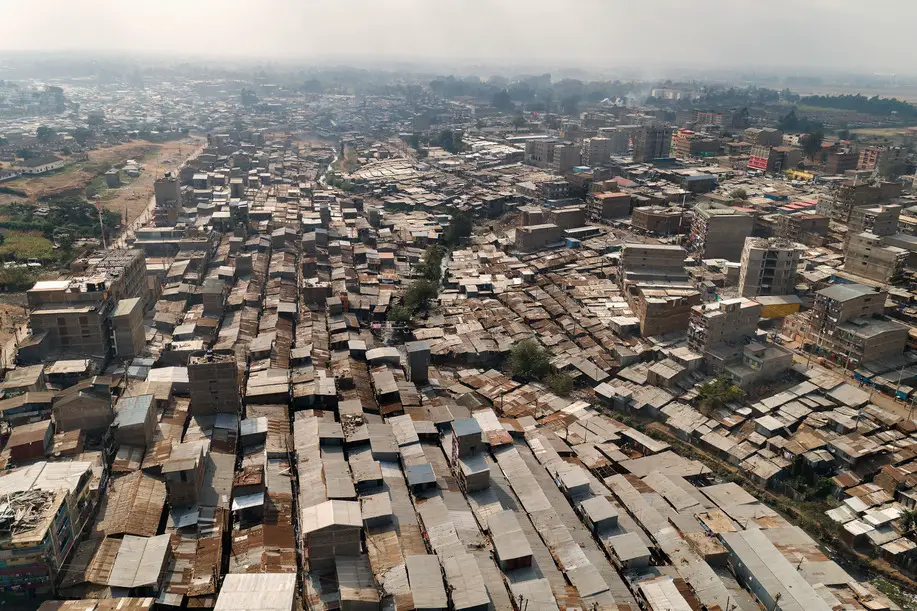
This image is property of paukwa.or.ke.
Education
School Enrollment
School enrollment rates in Mathare Estate have improved over the years, with efforts to increase access to education for children in the community. However, challenges such as overcrowded classrooms, limited resources, and the high cost of education impede the ability of some families to send their children to school.
Quality of Education
Ensuring quality education in Mathare Estate remains a challenge. Limited resources and overcrowded classrooms make it difficult for teachers to provide individualized attention to students. However, there are dedicated teachers and organizations working to improve the quality of education and provide additional support to students.
Early Childhood Development
Early childhood development is crucial for the overall well-being and future success of children. Efforts have been made to establish early childhood development centers in Mathare Estate, providing a safe and stimulating environment for young children. These centers support early learning and holistic development, giving children a strong foundation for their future education.
Social Services
Housing
Access to adequate housing has been a significant challenge in Mathare Estate. Many residents live in substandard and overcrowded conditions, often in makeshift structures made from scrap materials. However, there have been initiatives to improve housing conditions, including the construction of affordable housing units and upgrading existing structures.
Community Centers
Community centers play a vital role in providing social services and fostering community engagement in Mathare Estate. These centers serve as a hub for various activities, including skills training programs, recreational activities, and counseling services. They provide a place for residents to come together, share ideas, and support one another.
Youth Programs
Mathare Estate has a vibrant youth population, and programs aimed at empowering and supporting youth have been implemented. These programs include vocational training, mentorship programs, and entrepreneurship initiatives, providing opportunities for youth to acquire skills and become self-reliant.
Women Empowerment
Women empowerment is a key focus in Mathare Estate, with various organizations working to uplift and empower women. Initiatives include skills training programs, income-generating activities, and advocacy for women’s rights. These efforts aim to enhance women’s economic independence and promote gender equality within the community.
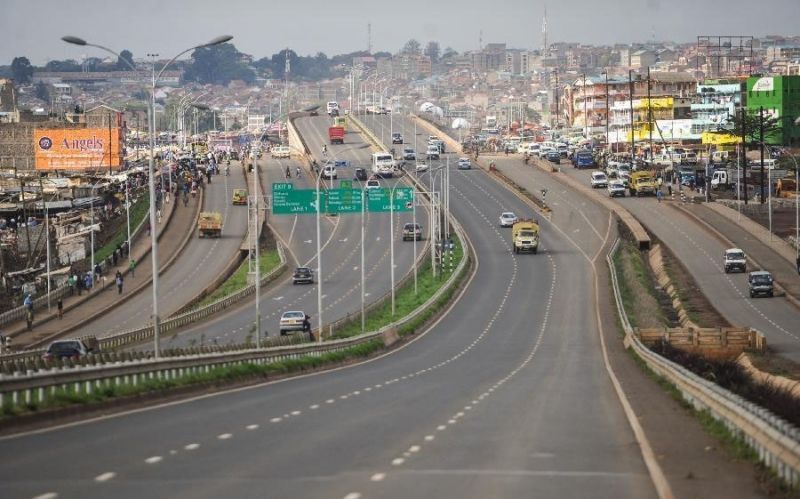
This image is property of www.wantedinafrica.com.
Crime and Security
Crime Rates
Mathare Estate has faced challenges related to crime and security. High poverty rates, unemployment, and limited access to education contribute to an environment conducive to criminal activities. However, efforts are being made to improve security measures and reduce crime rates through community policing and engagement programs.
Security Measures
Security measures have been strengthened in Mathare Estate to ensure the safety of residents. This includes the establishment of police posts and the deployment of police officers within the community. Community policing initiatives have also been implemented, encouraging residents to actively participate in maintaining security and reporting suspicious activities.
Youth Gangs
Youth gangs have been a concern in Mathare Estate, with some young people engaging in criminal activities. Efforts are being made to address this issue through youth empowerment programs, providing alternative opportunities, and creating safe spaces for young people to engage in positive activities.
Urban Renewal and Upgrading
Government Initiatives
The government has undertaken several initiatives to address the challenges faced by Mathare Estate. These initiatives include urban renewal projects focused on improving housing conditions, upgrading infrastructure, and providing basic services. The government’s commitment to urban renewal aims to transform Mathare Estate into a more livable and sustainable community.
Housing Improvements
Housing improvements are a key component of the urban renewal projects in Mathare Estate. Efforts have been made to upgrade existing structures, provide affordable housing options, and create a more sustainable and dignified living environment for residents. These improvements aim to enhance the quality of housing and ensure better living conditions for the community.
Community Participation
Community participation is crucial in the success of urban renewal and upgrading initiatives in Mathare Estate. Residents are actively involved in decision-making processes, providing input and feedback to ensure that the projects meet their needs and aspirations. Community-led initiatives, such as savings and loan groups, contribute to the overall development of the estate and empower residents to take charge of their own future.
In conclusion, Mathare Estate in Nairobi, Kenya, has a complex history and faces numerous challenges. However, ongoing efforts by the government, organizations, and the community itself are working towards improving the living conditions, infrastructure, healthcare, education, and overall well-being of the residents. With a focus on community participation, empowerment, and sustainable development, Mathare Estate has the potential to transform into a thriving and inclusive neighborhood.
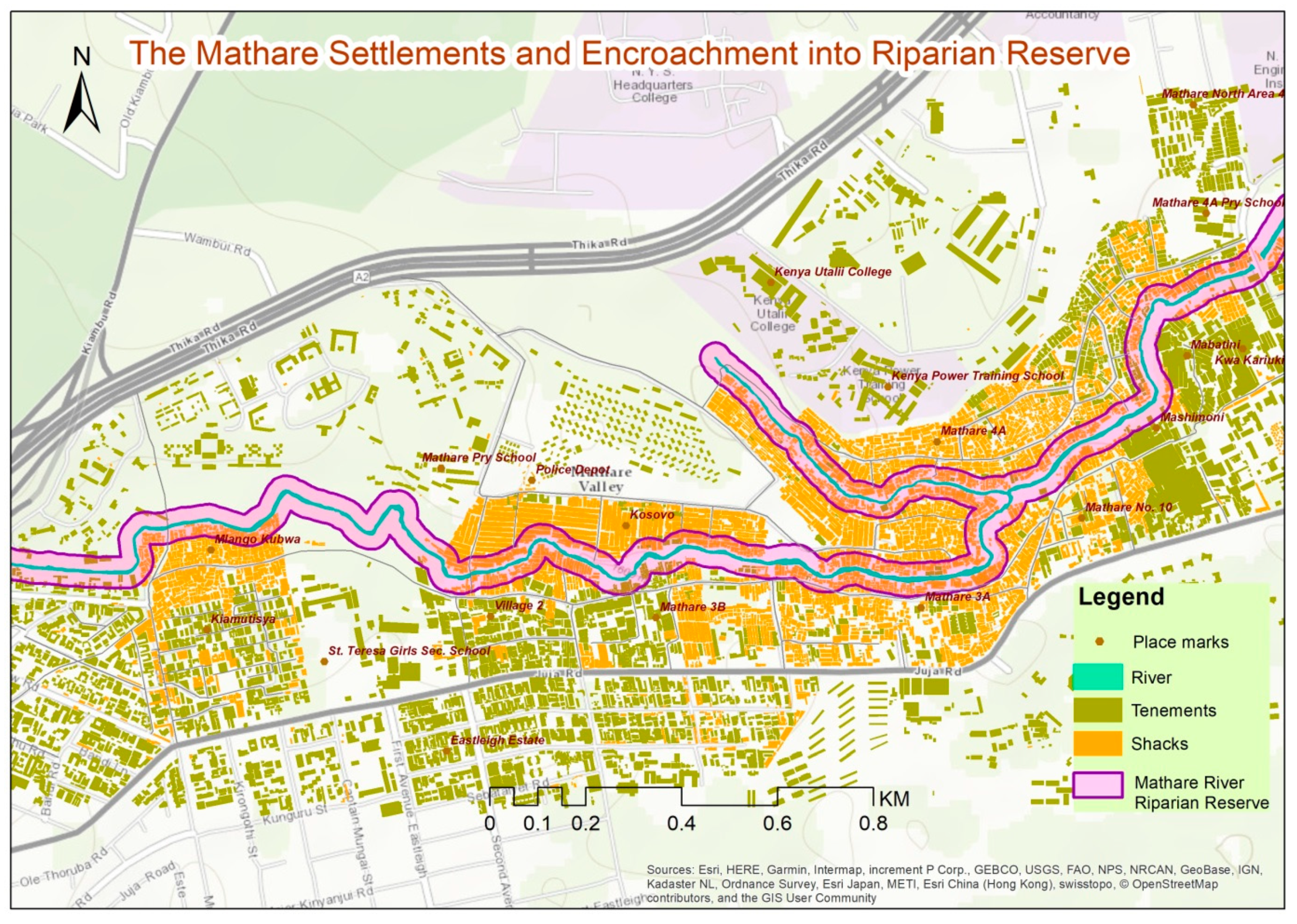
This image is property of www.mdpi.com.

